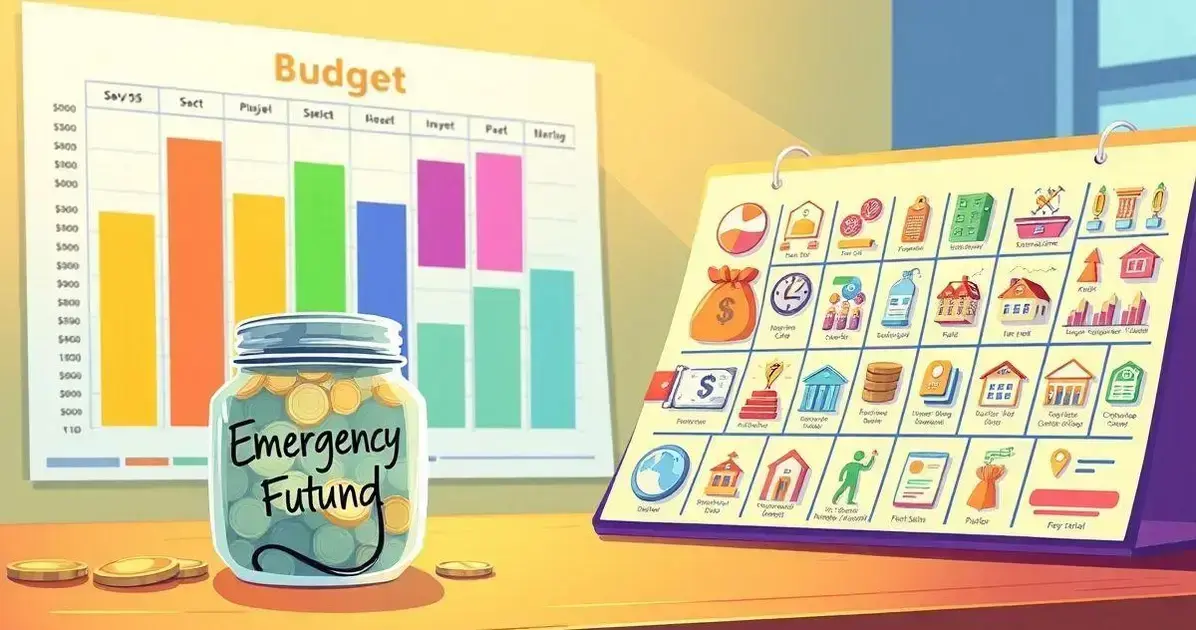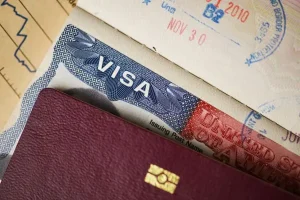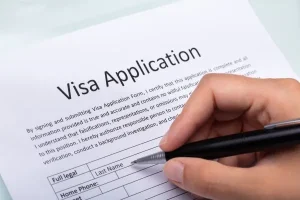Announcements
An economy crash refers to a sudden, severe decline in economic performance, often resulting from factors like high debt, financial speculation, and poor government policies.
It leads to widespread impacts, including increased unemployment, changes in consumer behavior, and long-lasting economic effects.
The economy crash is a term that strikes fear in many, signaling potential financial turmoil.
Announcements
Understanding why crashes occur, their historical context, and how they impact our daily lives is essential for anyone looking to navigate through uncertain economic times.
Understanding the Causes of an Economy Crash
Understanding the causes of an economy crash is critical for anyone who wants to prepare for unpredictable financial situations.
Announcements
Many factors can lead to a sudden economic downturn.
Economic Cycles
One primary reason for an economy crash is the economic cycle. Economies naturally go through periods of growth and contraction.
During growth, businesses thrive, and spending increases. However, the overextension of credit can lead to a crash.
Speculation in Financial Markets
Another major cause can be speculation in financial markets. When investors buy assets based on speculation instead of real value, it creates bubbles.
Once these bubbles burst, it can quickly lead to a crash.
High Debt Levels
High levels of debt among consumers and businesses can also trigger an economy crash.
When many people and companies borrow more than they can repay, it results in defaults, which ultimately harms financial institutions and the broader economy.
External Shocks
External shocks, such as natural disasters, geopolitical events, or sudden changes in oil prices, can destabilize economies.
These events can cause disruptions in production, supply chains, and consumer confidence.
Poor Government Policy
Poor government policies can contribute significantly to an economy crash.
Unwise decisions regarding interest rates, taxation, or regulation can create an environment ripe for a downturn.
By studying and understanding these causes, individuals can better prepare themselves for potential impacts.
Keeping informed about economic trends can help you make wise financial decisions during uncertain times.
Historical Examples of Economy Crashes
Throughout history, there have been many significant economy crashes. These events serve as lessons for us today.
Understanding these examples can help us prepare for future challenges.
The Great Depression (1929)
The Great Depression is one of the most well-known economy crashes in history.
It began in October 1929 when the stock market crashed. This led to massive unemployment and widespread poverty. The effects lasted throughout the 1930s.
The 2008 Financial Crisis
The 2008 financial crisis was caused by the collapse of the housing market and risky banking practices.
Many people lost their homes and jobs. Governments had to step in with bailouts to prevent a complete economic collapse.
The Dot-com Bubble (2000)
The Dot-com bubble was another notable crash. In the late 1990s, many internet-based companies quickly rose in value.
However, when these companies failed to make profits, their stock prices plummeted in 2000. This left many investors in financial trouble.
The 1997 Asian Financial Crisis
The 1997 Asian financial crisis started in Thailand and spread to other Asian countries. It was caused by excessive debt and currency speculation.
This crisis caused significant economic problems in many nations and affected global markets.
The 1987 Stock Market Crash
The 1987 stock market crash, also known as Black Monday, saw the stock market drop dramatically in just one day.
It was primarily due to panic selling and a lack of investor confidence. This crash led to new regulations in the financial markets.
These historical examples remind us how quickly economies can change. By learning about past crashes, we can better prepare for future economic uncertainties.
Strategies to Protect Your Finances

Protecting your finances during an economy crash is essential to ensure your financial security. Here are some effective strategies to safeguard your assets.
Create a Budget
Start by making a budget. Knowing where your money goes can help you identify areas to cut back during tough times.
This way, you will be better prepared if unexpected expenses arise.
Build an Emergency Fund
Having an emergency fund is crucial. Aim to save at least three to six months’ worth of living expenses.
This fund can provide a safety net if you face sudden job loss or urgent financial needs.
Reduce Unnecessary Debt
Try to pay off high-interest debt before an economy crash occurs. Reducing your debt load will save you from additional financial strain during tough economic times.
Focus on paying off credit cards and loans with high-interest rates first.
Diversify Your Investments
Diversification is key in protecting your investments. Spread your money across different asset classes, such as stocks, bonds, and real estate.
This approach can minimize risks and protect your investments during market downturns.
Stay Informed
Staying informed about economic trends and indicators can help you make more informed financial decisions.
Use reputable sources to keep track of market conditions and adjust your strategies accordingly.
By implementing these strategies, you can better protect your finances and navigate the challenges of an economy crash.
Taking proactive steps will give you peace of mind amidst economic uncertainty.
Ways to Invest During an Economy Crash
Investing during an economy crash can be challenging, but certain strategies can help you navigate these turbulent times effectively.
Here are some ways to invest wisely during an economy crash.
Consider Defensive Stocks
Defensive stocks are companies that provide essential goods and services, like food and healthcare.
These stocks tend to perform better during economic downturns because their products are always in demand.
Look into Bonds
Bonds, especially government bonds, are considered safer investments during market volatility.
They provide consistent returns, which can be a good alternative to riskier stocks.
Explore Dividend-Paying Stocks
Many companies offer dividends to their shareholders. Investing in dividend-paying stocks can provide a steady income, even when stock prices are falling.
This income can help you ride out financial stresses.
Consider Precious Metals
Precious metals, such as gold and silver, often hold their value during economic crises. Investing in these can be a hedge against inflation and market instability.
Invest in Real Estate
Real estate can be a solid long-term investment, even during crashes.
Look for properties that are undervalued due to market conditions. Investing in affordable rental properties can provide ongoing income.
By using these strategies, investors can take advantage of opportunities that often arise in a crisis.
Careful thought and planning can help you remain financially secure during challenging times.
The Long-Term Effects of an Economy Crash
The long-term effects of an economy crash can touch many aspects of life.
People and governments often face challenges that last far beyond the initial downturn.
Unemployment Rates
After an economy crash, unemployment rates often rise significantly. Many businesses shut down or reduce their workforce.
This can lead to job scarcity and long-term financial struggles for individuals.
Changes in Consumer Behavior
People tend to change their spending habits during and after an economy crash. They may become more cautious and spend less.
This cautious behavior can slow economic recovery as businesses struggle to generate sales.
Impact on Savings and Investments
Investment portfolios often take a hit during a crash. People may lose confidence in the stock market, leading them to withdraw investments and save more.
This change in attitudes can affect capital for businesses and growth over time.
Government Regulations
Economy crashes often lead to new government regulations. Lawmakers may implement stricter policies to prevent future crashes and protect consumers.
While this can be beneficial, it can also slow innovation and business growth.
Societal Changes
Long-term societal impacts can also arise from an economy crash. Issues such as increased stress and mental health struggles may become more common.
Families may face enduring challenges, impacting their overall well-being.
Understanding these long-term effects is essential for individuals and policymakers.
It prepares everyone for potential challenges and highlights the importance of supportive measures during recovery.
FAQ – Frequently Asked Questions about Economy Crashes
What is an economy crash?
An economy crash is a sudden and severe decline in economic performance, typically marked by significant drops in stock prices, unemployment, and consumer spending.
What causes an economy crash?
Common causes include high debt levels, financial speculation, poor government policy, and external shocks such as natural disasters.
How can individuals protect their finances during a crash?
Individuals can protect their finances by creating a budget, building an emergency fund, reducing unnecessary debt, diversifying investments, and staying informed.
What should I consider when investing during an economy crash?
Consider investing in defensive stocks, bonds, dividend-paying stocks, precious metals, and undervalued real estate to mitigate risks during an economy crash.
What are the long-term effects of an economy crash?
Long-term effects can include increased unemployment, changes in consumer behavior, impacts on savings and investments, government regulations, and societal changes.
How do historical examples help us understand economy crashes?
Historical examples illustrate patterns and impacts of past crashes, helping individuals and businesses prepare for and respond to future economic downturns.







